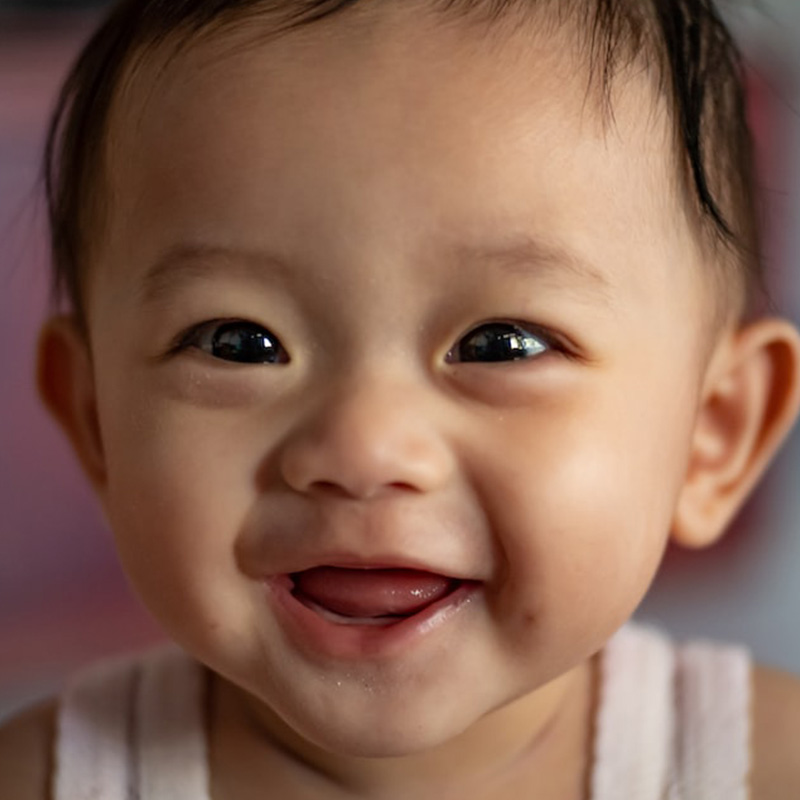Make Dental Work Easier
Bring the best Chinese digital dentistry solution to Africa.
Under normal circumstances, when the child is 6 or 7 years old, the deciduous teeth begin to fall off automatically, and then the permanent teeth gradually sprung up, becoming a good partner of the child's life. However, some children have grown up, but the corresponding deciduous teeth are unwilling to "abdicate", and the permanent teeth are forced to "vocate" behind the deciduous teeth, thereby forming one front and back two layers of teeth. At this time, if you do not remove the occupied deciduous teeth in time, it will affect the normal growth of the permanent teeth, leading to the misalignment of the teeth, incomplete arrangements, and incorrect bite.
The phenomenon of "double -layer teeth" caused by the permanent teeth at the same time caused the permanent teeth. Why do some babies change their teeth normally, while others have two layers of teeth?
Black food is too fine
Many parents are worried that their babies are prone to stinging. They are afraid of hard food to damage their teeth. They make the baby's food very finely. The vegetables are cut off, and the apples are thin and eat. These fine food lacks fiber. When eating, there is no need to chew too much at all. It cannot be given full stimulation of deciduous teeth, so that the connection of the teeth and alveolar bones of the deciduous teeth is inseparable. The permanent teeth cannot ban the corresponding position of the deciduous teeth. They can only "find another way" and grow from the rear of the deciduous teeth. This forms double -layer teeth.
Life lies in exercise, as well as teeth. The main function of the teeth is to chew food. After the baby grows deciduous, let the teeth chew more food and "exercise" to promote the growth and development of deciduous teeth. It will naturally fall off at a certain period of time (6 or 7 years old).
As the saying goes, "Rough tea and light rice are good for raising people", dental experts suggested that parents should appropriately allow babies to eat more chewy foods based on their baby's age and the ability to chew their deciduous teeth, such as celery, corn, apple, sea crickets, beef, peanuts, etc. Eating these chewy foods often can increase the chewing ability of the teeth. By chewing movement, it affects the exercise of the chewing muscle group, accelerates blood circulation, promotes the development of gums, mandibular and facial bones, promotes deciduous teeth to fall off on time, and ensure that the tooth changes will be changed smoothly in the future.
Develop good eating habits
1. Feeding should be quantitative regularly: Let children develop good eating habits from an early age, strengthen gastrointestinal digestion, digestion and absorb well, and children's teeth can grow healthier. This is a virtuous cycle.
2. Overcoming partial eclipse habits and ensuring nutritional balance: correct the bad habits of children's partial eclipse, and ensure that the child's intake is sufficient and balanced to ensure the normal structure, shape of the teeth, and improve the resistance of the teeth.
3. Develop the correct milk posture: When some babies eat milk, they will form a mandibular premissions or post -shrinkage because of incorrect posture or the position of the bottle.
4. Let the teeth do exercise: Children with teething are particularly like to bite or bite hard things. This is because the deciduous teeth grow to squeeze the surroundings, which makes the gum tissue feel itchy. At this time, the mother can let the baby chew some harder things, such as biscuits, grill slices, apple slices, carrot slices, etc. On the one hand, it relieves the discomfort of the gums, on the other hand, it can exercise chewing muscles and promote the development of teeth and mandibular bone.

Copyright © 2024 Golden Promise Dental Co.,Ltd. | All Rights Reserved
We are here to help you! If you close the chatbox, you will automatically receive a response from us via email. Please be sure to leave your contact details so that we can better assist